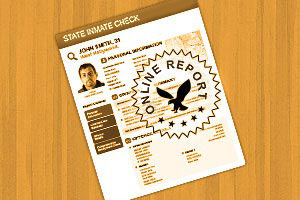Florida Public Records
The Florida State Records website provides every Florida resident with tools to access public records. This ensures Florida residents are able to use their right to access and obtain public records, in accordance with the Florida Public Records Act, which presumes all government information and records are available to the public.
This information is available to all members of the general public, and is given immediately and concisely without requiring any personal information, unless such information is confidential by law.
The Florida State Records website contains information about criminal records, court records, vital records and includes over 185 million transparent public records.
Are Florida Records Public?
Yes. According to the Florida Sunshine Law, most records generated by government entities are considered public. The law states that all persons have the right to access municipal, county, and state records. Residents are also free to inspect these records or obtain copies if preferred. The Sunshine Law defines public records as information created or received by a public agency and required to transact public business.
What is Considered Public Information in Florida?
Some requestable Florida public records include criminal history records, court records, bankruptcy records, arrest records, sex offender information, vital records, criminal records and inmate records.
Florida's Sunshine Law protects the public's right to perform paid or free public data searches to obtain government records, regardless of a record's physical form, mode of transmission, or characteristics. Records may be documents, books, photographs, sound recordings, tapes, software, films, or other materials. The state's public record laws also specify that public access must not be hindered by the effort of any government agency to automate record access (Fla. Stat. § 119.01(2)(a)). Furthermore, agencies who choose to provide remote access to Florida public records must do so in the most efficient and cost-effective manner (Fla. Stat. § 119.01(2)(a)).
However, any individual that submits a public records act request in Florida must note that the state's public records are only receivable in the same format they are maintained. Florida law does not require public agencies to create or reclassify records, answer questions about maintained records, or convert records into formats that are not already available.
How Do I Find Public Records in Florida?
All interested persons may obtain Florida public records by sending official requests to the respective record custodians. According to Florida statutes, the official custodian at a Florida department or agency must permit requesters to copy or inspect records under the custodian's supervision (Fla. Stat. § 119.07(1)(a)). The following steps describe how to check for public records in Florida:
- Decide on the type of record
Each requester must first decide the type of information sought. Available public records may include sex offender information, inmate records, court records, and vital records, among others. Knowing what type of record is desired is necessary to guide the request process. For instance, individuals looking for information on incarcerated persons must request inmate records.
- Identify the relevant agency
Florida public records are created and maintained by different agencies. After deciding on the desired type of record, the requester must identify the relevant custodian agency. For instance, court records are available at the respective courts that hear the cases. For property records, the requester may contact the Property Appraiser of the county where the property is located.
In some cases, some public records may be obtainable from multiple agencies. For instance, Florida divorce records are available from the courts that heard each case and also from the Florida Department of Health.
- Make an official request
Custodians allow requesters to send applications for public records using different methods. Most public agencies allow physical requests and completed public request forms. Others may allow applicants to request over the phone, by fax, and online. Regardless of the preferred method, an official request for a public record should contain the following information:
-
A specification on the type of record: This is important, especially if the agency maintains different types of records. For instance, a public record request to a sheriff’s department must state that the requester wants an arrest record, an accident report, or another type that the sheriff’s office handles.
-
A description of the record, including names, dates, and other information on the record. The requester may also include other details that may help the custodian find the record
-
The requester’s full name and contact details
-
Means of identification (if required for the request)
-
Payment in the amount and method preferred by the agency
-
Delivery details
-
Submit the request
Requesters must submit applications as specified by the agency. Custodians usually allow submissions using varying methods, including mail, fax, phone, or online. In some cases, online requests are free of charge. Generally, Florida law does not require that record requests be in writing.
Requesters should note that certified copies of Florida public records may be unavailable online. Usually, custodians may only entertain in-person and mail requests for certified copies and may add requirements such as a government-issued ID. When submitting a request, the record seeker must follow the agency's instructions for submission or risk delay or dismissal.
Using Third-Party Sites to Find Public Records in Florida
City Records
Public city records may also be accessible from third-party websites. These non-government platforms come with intuitive tools that allow for expansive searches. Record seekers may either opt to use these tools to search for a specific record or multiple records. However, users will need to provide enough information to assist with the search such as:
- The name of the subject involved in the record (subject must be older than 18 or not juvenile)
- The address of the requestor
- A case number or file number (if known)
- The location of the document or person involved
- The last known or current address of the registrant
Third-party sites are not sponsored by government agencies. Because of this, record availability and results may vary.
Public Records
Public records can also be accessed from third-party websites. These third-party public records aggregate websites offer search services that are non-geographically limited, making the search result expansive and typically straightforward. However, users will need to provide enough information to assist with the search, such as:
- The name of the subject involved in the record as long as the subject is not a juvenile
- The last known or location of the record subject
Third-party public records search websites are not government-sponsored services. Therefore, the availability and accuracy of results can vary.
How Do I Look Up Public Records in Florida for Free?
Most Florida agencies charge varying fees to produce copies of desired public records. The state also does not provide any general fee exemptions or waivers to requesters. However, a record seeker looking for free public records searches may consider submitting a request for inspection instead of requesting physical copies. Inspecting records for free typically requires the requester to visit the custodian (for example, a county clerk's office) to use a provided computer terminal or a public records library.
Interested persons may also look up public records for free online. Some Florida agencies maintain online databases where parties may obtain public records at no cost. For instance, the Florida Supreme Court provides a free online docket to access non-confidential petitions, briefs, dispositional orders, and referee reports. The public can also find free information on registered sex offenders on the Florida Sexual Offender Registry. Furthermore, county recorder’s offices (which also perform clerk of court duties) provide online databases to retrieve deeds, judgments, financial statements, and other available official records.
The state of Florida started generating public records in 1849 and these records usually include information from 67 counties. Both third party and government websites have increasingly carried these records online as digitization has become the standard for public records. This increase access helps to ensure Florida abides by the commitment of the United States of America to remain a fair and just society for all.




